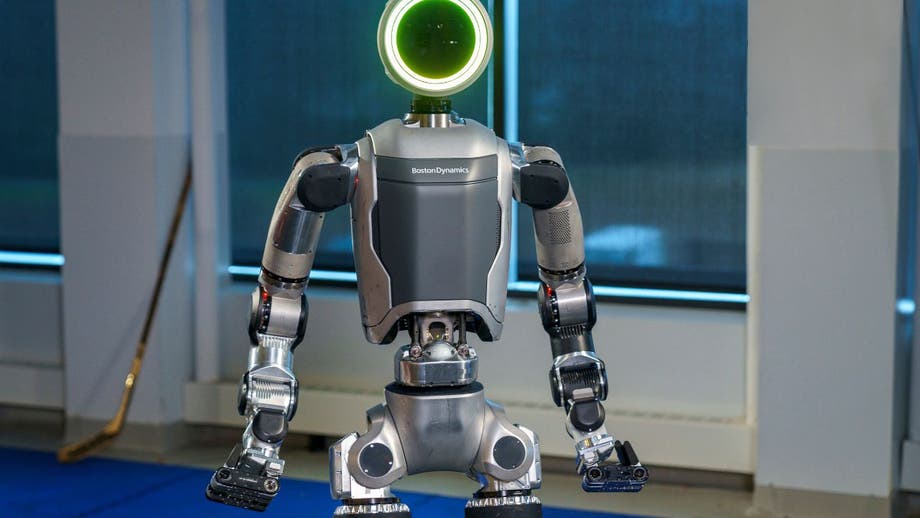Artificial intelligence (AI) is rapidly transforming modern warfare, with software companies like Govini and Palantir playing a pivotal role in developing and modernizing cutting-edge weapon systems. These technologies are revolutionizing warfare, giving the United States an advantage over its adversaries.

Modern warfare is undergoing a profound transformation, with artificial intelligence (AI) emerging as a key factor in staying ahead of adversaries. Software companies like Govini and Palantir are driving this revolution, producing high-tech weaponry that is reshaping the battlefield.

At the second annual AI Expo for National Competitiveness in Washington, these companies showcased their latest advancements to the nation's top military brass. FOX News witnessed firsthand the capabilities of this cutting-edge technology and interviewed Alex Karp, the CEO and co-founder of Palantir, whose software is deployed in Ukraine and the Middle East.
"The way to prevent a war with China is to ramp up not just Palantir, but defense tech startups that produce software-defining weapons systems that scare the living F out of our adversaries," Karp asserted.

He emphasized the urgency of maintaining the United States' lead in AI, lest Russia and China gain ascendancy. "It's either us or them... You do not want a world order where our adversaries try to define new norms. It would be very bad for the world, and it would be especially bad for America," Karp warned.
Software companies are demonstrating their AI tools to top military officials. For instance, Mixed Reality Command and Control goggles provide warfighters with real-time battlefield visualization, displaying available air assets, enemy targets, and supply routes in 3D.

Former intelligence analyst Shannon Clark, now at Palantir, believes this targeting technology could have shortened the Iraq and Afghanistan wars, potentially leading to different outcomes.
"It's about speed. What was able to be done in days or weeks is now done in minutes," Clark explained.

As drone swarms become increasingly prevalent, identifying available weapons stockpiles is crucial. "I had a general say to me the other day, 'It doesn't matter if I have 50 targets. I need to know what ammo I have available,'" Clark said.
Maverick is an AI-generated target effector that automatically selects targets based on priority and suggests appropriate weapons for engagement.
Other software companies are emulating Palantir's lead. At the summit, Govini showcased its Ark software, which maps potential supply chain vulnerabilities for the Defense Department.
"When we think about the Indo-Pacific in particular, we talk a lot about the scale... You are not going to be able to do this alone," Clark added.
Intelligence tips from allies can now be effortlessly analyzed using Palantir's software, facilitating the detection of nefarious cargo ships. "Thanks to AI, the intelligence tip could lead quickly to targeting an enemy ship in the Pacific," Clark explained.
While AI enables faster decision-making, humans remain the ultimate arbiters. "We're just compressing everything up to that point to do it faster, to do it more efficiently, and to do it at a scale where they are going to be able to make those decisions," Clark said.
The Pentagon is exploring how AI-enhanced weaponry can enhance the capabilities of existing systems. Joint Chiefs Chairman Gen. C.Q. Brown Jr. emphasized the need to stay ahead of China and Russia in AI-based advancements.
"I don't play for second place. If I'm in, I'm putting my best foot forward to make sure we are going to win," Brown stated.
AI's applications extend beyond defense, as a bipartisan group of senators led by Chuck Schumer proposed a $32 billion investment over the next three years. Senator Mike Rounds highlighted AI's potential for advancements in cancer and chronic illness treatment.
Karp addressed concerns about AI development, advocating for dominance first and rule-making later. "What we have to do as Americans is get these technologies into our DOD warfighting systems as quickly as possible... and then show on the battlefield things that no one else can do."










